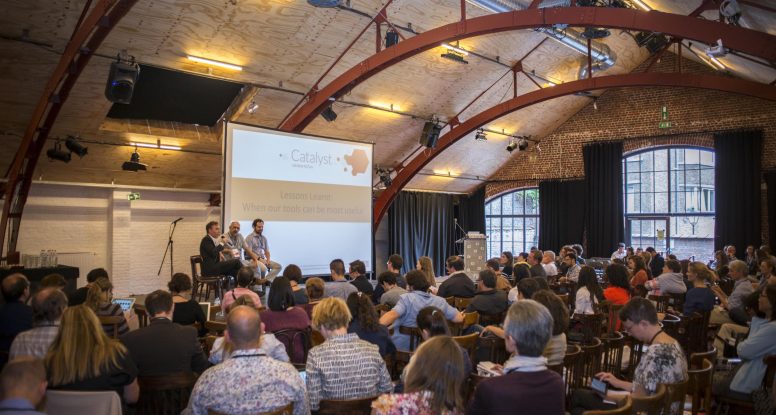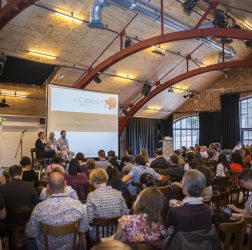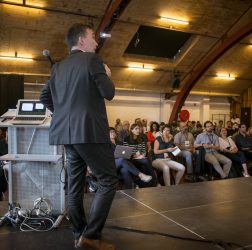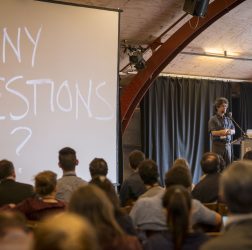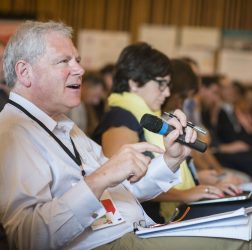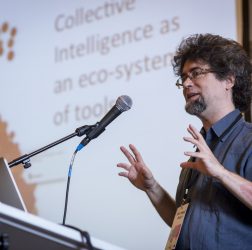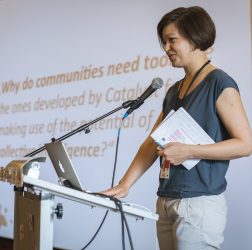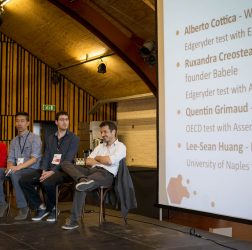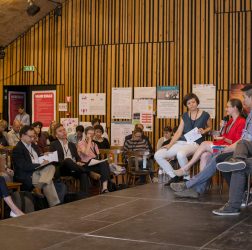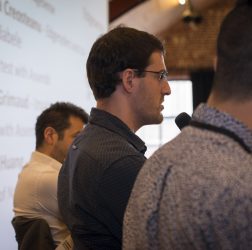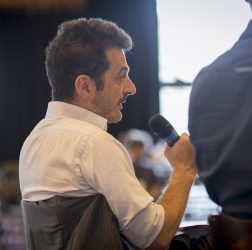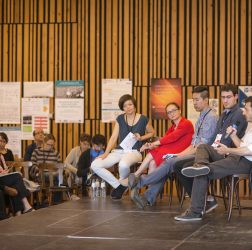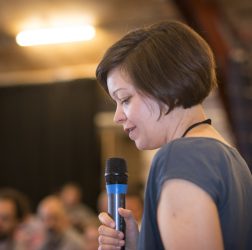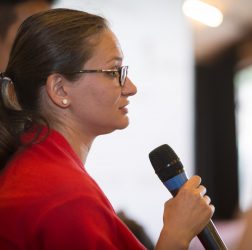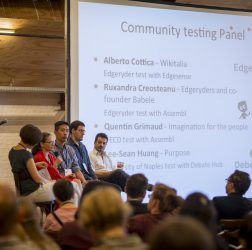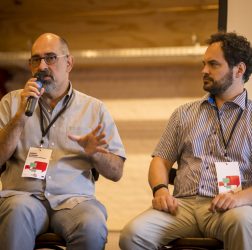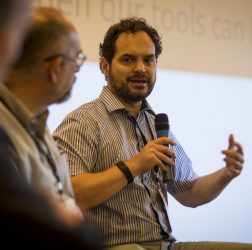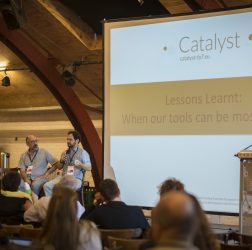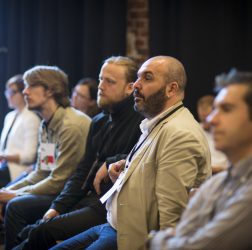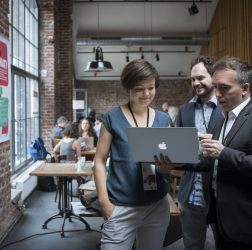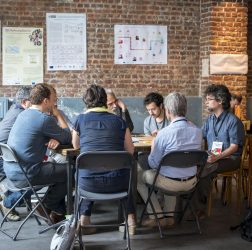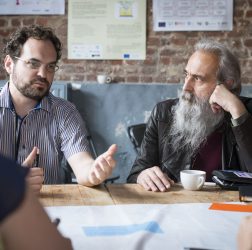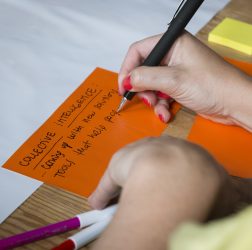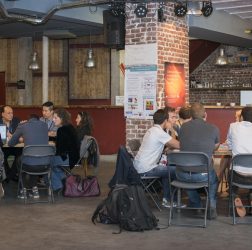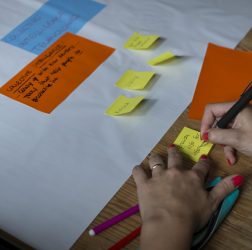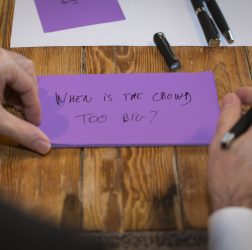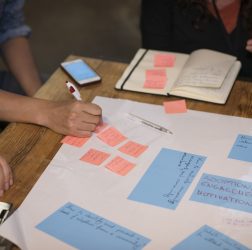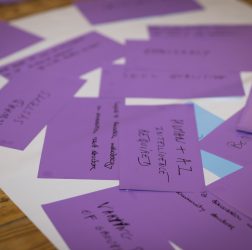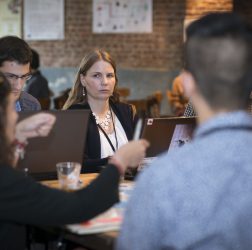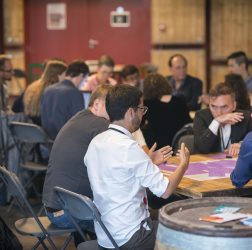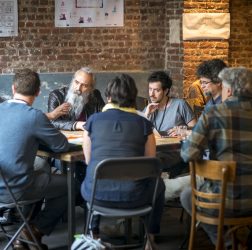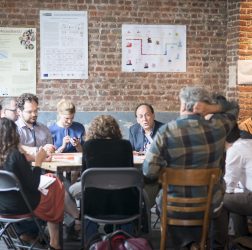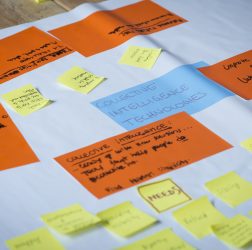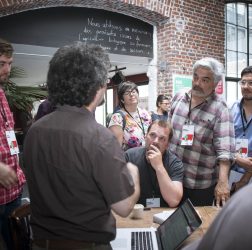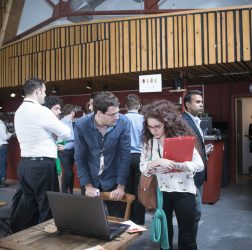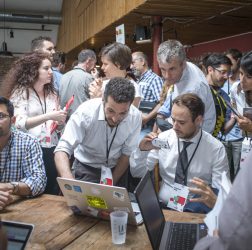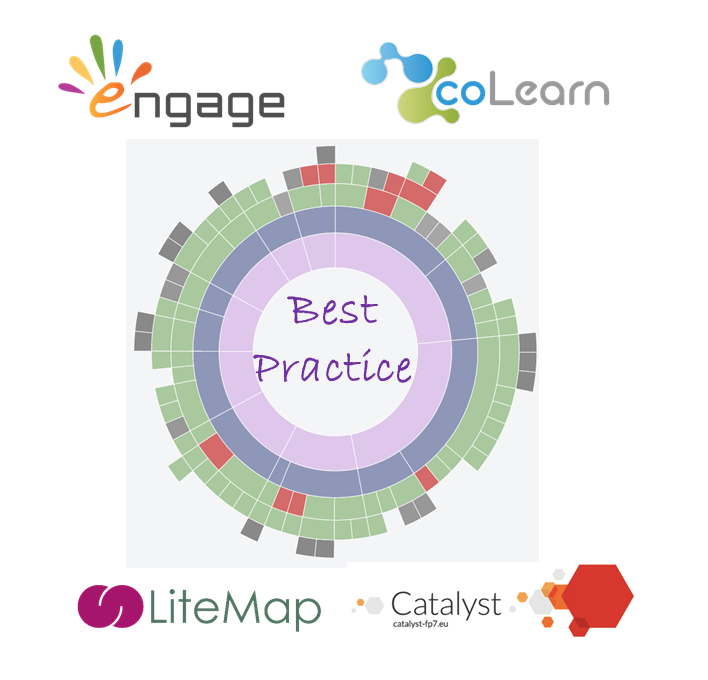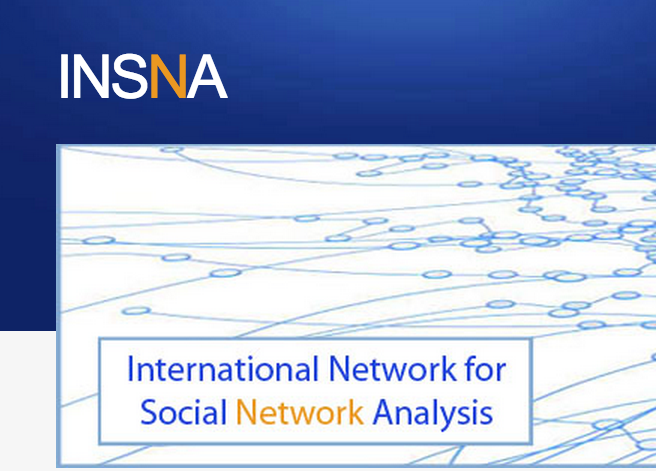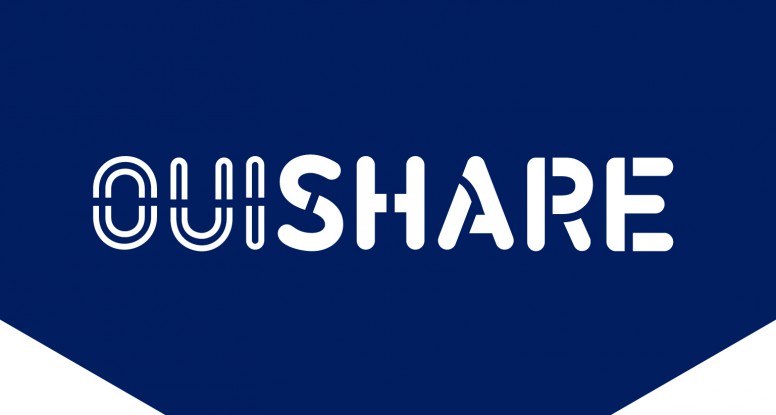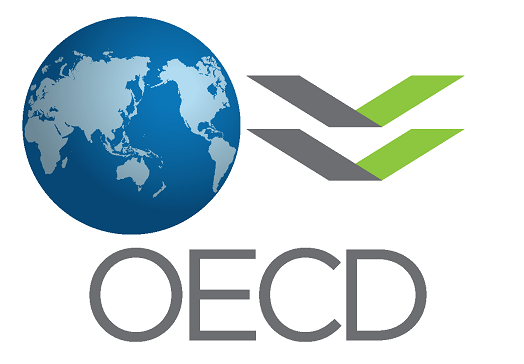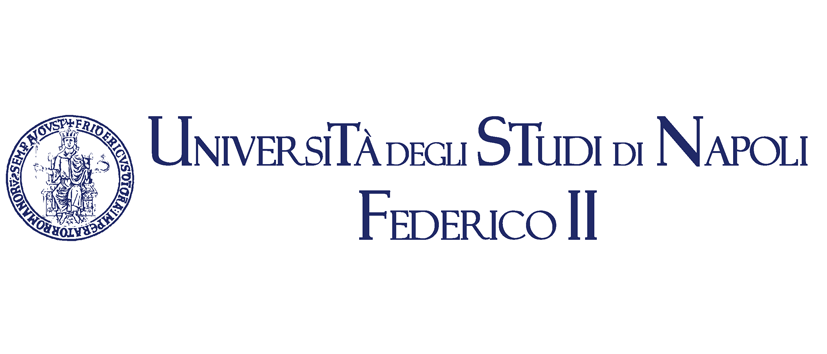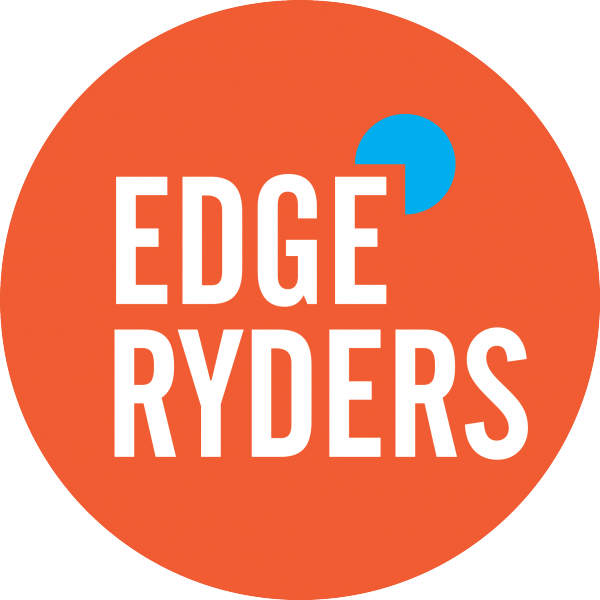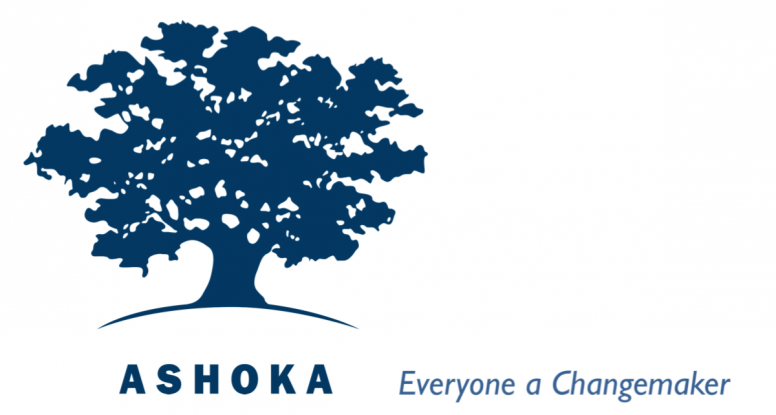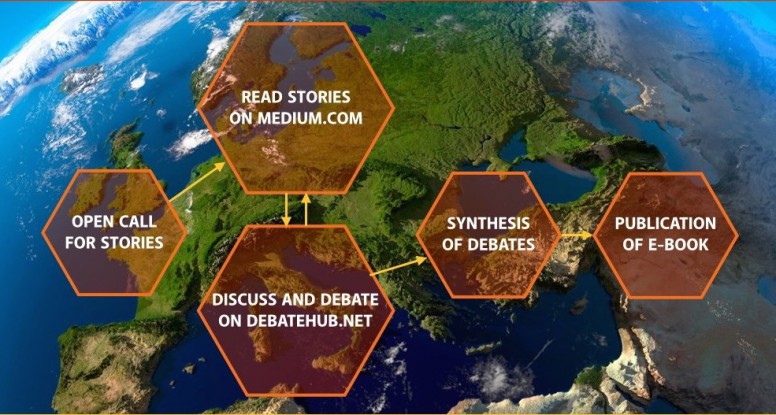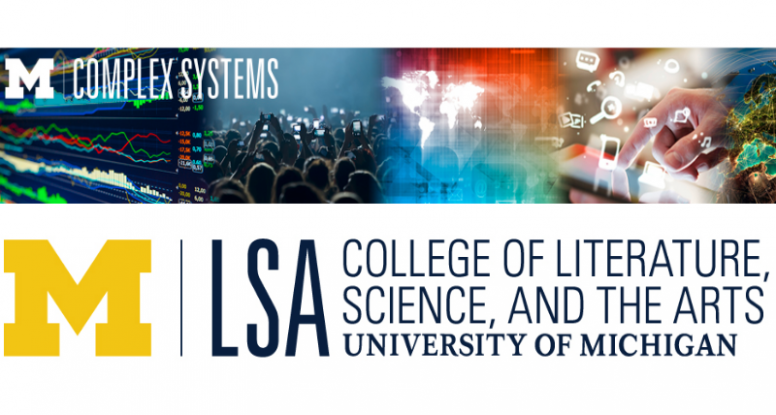CATALYST final event was hosted within CAPS2015 OFF Programme on July 7-8, 2015 in Brussels. From a Demo session to a World Café workshop through a roundtable, the project displayed its final developments and results.
It all started on July 7 with CATALYST demo session, scheduled to last 1.5 hours but which, in the end, lasted 2.5 hours to satisfy the high number of attendees looking forward to receiving a demo of Assembl, LiteMap, DebateHub, Edgesense and the CI Dashboard.
The day after CATALYST panel, “Harnessing the Power of Collective Intelligence: Technologies and Communities” gathered more than 200 participants. Short presentations and lots of exchanges took place to deliver to the audience the results and lessons learnt from the project, including the challenges faced to implement the tools usage within online communities. This part received the support of Ruxandra Creosteanu, from Edgeryders, who tested Assembl and Edgesense as part of the winners of CATALYST Open-Call. This session was further closed by a panel discussion on the future of collective intelligence in which Carlos Rossique Delmas, IT engineer, joined the CATALYST partners to share his expertise and vision on the future of citizen eParticipation. His intervention was based on his great experience with several large-scale collective intelligence platforms for participatory democracy in Spain (AutoConsulta Ciudadana, Consulta por la Sanidad, etc.).
As a project promoting collective intelligence, CATALYST also wanted to get inputs and welcome external points of view. The World Café workshop that followed the project roundtable thus allowed CATALYST partners to gather opinions from approximately 50 attendees about ‘The Future of Collective Intelligence Processes and Solutions’. A great amount of knowledge was created and allowed the consortium to collect the vision of CAPS stakeholders in terms of Collective Intelligence. These ideas were live-mapped using CATALYST tools. Edgesense provided a visualisation of the event official hashtag, #CAPS15eu: After two days of the Twitter mentions network is close to 2500 relationships across 500 people.
The presentation of the roundtable is already available on CAPS2020 website and the full reports of the panel and the workshop will be made available very soon. In the meantime, you can discover below the pictures of the three sessions.
Credits: Valentina Sommariva

